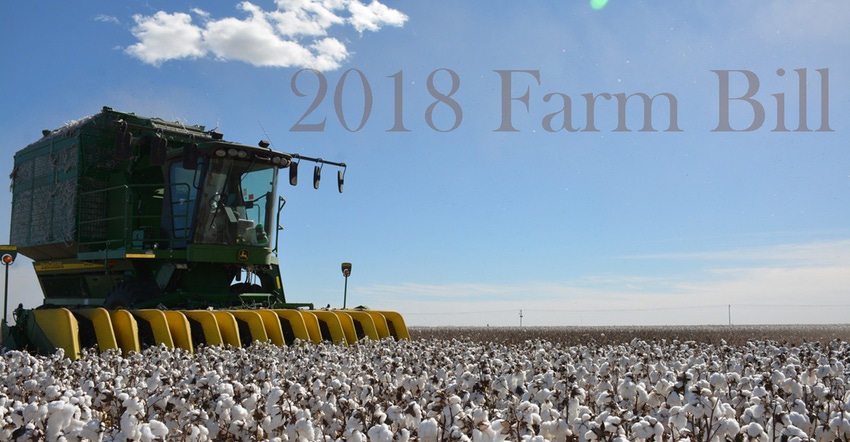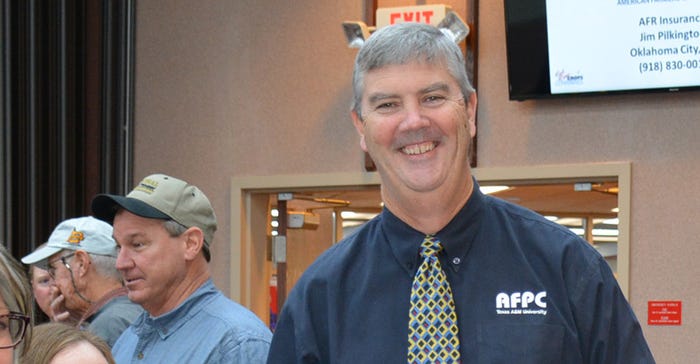
According to the Farm Bill House and Senate Conference Report, an agreement in principle has been reached on the 2018 Farm Bill.
“House and Senate Agriculture Committee Chairmen Mike Conaway (R-Texas) and Pat Roberts (R- Kan.) and Ranking Members Collin Peterson (D-Minn.) and Debbie Stabenow (D-Mich.) made the following announcement today on the state of 2018 Farm Bill negotiations:
“We’re pleased to announce that we’ve reached an agreement in principle on the 2018 Farm Bill. We are working to finalize legal and report language as well as CBO scores, but we still have more work to do. We are committed to delivering a new farm bill to America as quickly as possible.”
Related: Farm bill negotiators close to a deal
And while an economist speculated Wednesday at the Amarillo Farm and Ranch Show Wheat Symposium that an agreement would be reached within days, he says when it is finalized, while it won’t change the world dramatically, it will provide structure to farm programs for next year’s crop but more importantly, assurance for lenders.
“The certainty of a farm bill provides lenders security they are going to get a certain amount of money back on what they lend. Without that, we wouldn’t have near as many producers getting production loans in this state or this country,” says Dr. Joe Outlaw, professor, Texas A&M AgriLife economist, and co-director of the Agricultural and Food Policy Center at Texas A&M University.

Dr. Joe Outlaw, Texas A&M AgriLife Extension Service economist and co-director of the Agricultural and Food Policy Center at Texas A&M University in College Station
“The farm bill is one of those things people think is helping the actual producer, but it expands out to the rest of the economy when you think about what it’s doing for the lending community, allowing them to make loans and feel comfortable that the risk is worth the money they are putting out there.”
Outlaw, who has been working on farm bills since 1986, says for producers who question whether the farm bill is beneficial to them, he encourages them to consider what it takes to start farming every year.
“Agriculture is so tightly knit with input suppliers and people who handle the output. But what they forget about is lenders are sort of at the beginning of this process because, some have enough to farm on their own money, but for most, they are going to go into a lender and work through the process of getting a production loan. Without the security of the farm bill, lenders who have regulators who monitor their actions, would find it very difficult to lend to agriculture.”
Misconceptions
One of the farm bill misconceptions Outlaw says he defends almost daily to agriculture opponents and people in Washington D.C., is that the farm bill is about lining the pockets of producers.
See live interview.
“The farm bill is more about the lending part of it than getting people rich. It’s something I have a hard time getting the average person to understand because all they hear about is the money. It’s not about the money. It’s about the security and stability of having a safety net whenever producers really need it.”
And whether it’s crop insurance or Title I commodity programs provisions, he says the purpose of the bill is trying to replace a little bit of what was lost.
“A farmer starts out the year wanting to make a certain amount of money — price times yield — and he hopes the yield works out and prices hold up. What I’m seeing right now is a deficit, and the government is making up a portion. I’m not even talking half, I’m talking a portion. Over time, that portion has been bigger or smaller, depending on the farm bill. But all we are talking about is making up some of the loss, so the producer has the financial wherewithal to go back to his lender the next year and get the opportunity to try again. This is not about lining people’s pockets.”
The consumer
The farm bill will also provide security for U.S. consumers, who enjoy the safest, cheapest most abundant food supply in the world. “What they don’t see is these programs keep more people farming and keep the food prices lower than they would have been,” says Outlaw. “A strong ag economy is going to make for a strong national economy, but the average consumer doesn’t put the two together — that we need farmers and why.”
About the Author(s)
You May Also Like






